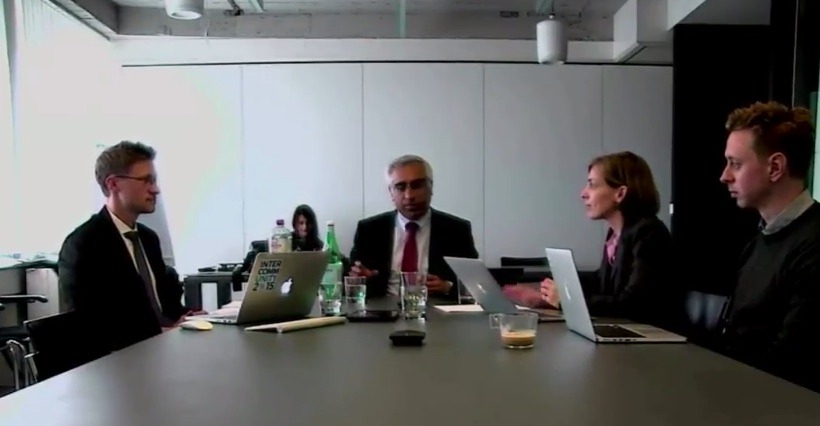On 16 June, the Internet Society hosted an exclusive dialogue with the UN Special Rapporteur on Privacy (SRP), Prof. Joseph Cannataci.
Prof. Cannataci is the first-ever Special Rapporteur on the right to privacy. His initial report was issued in March 2016 and mapped an ambitious plan for the next few years, with a particular consideration on privacy issues related to the Internet and ICTs.
Many members from the Internet Society membership and community joined this conversation and engaged actively around a set of key priorities identified by the Special Rapporteur.
Here are some key takeaways from this exchange:
> The definition of privacy as a first priority: How to investigate and talk about privacy with people who don’t necessarily have a word for it in their language? The first step the SRP would like to reach is a widely shared and cross-cultural understanding of privacy. He believes it is only on this basis that he will be able to take his mandate forward.
> Privacy enabling the development of people’s personality: This is one of the main theses of the SRP. He sees privacy both as a right in itself, but also an enabler of other rights. In addition to enabling freedom of expression, he asserts that respect for privacy is essential to the un-hindered and free development of one’s personality. In other words, the ability to keep some information private or limited to certain groups is said to be fundamental to individuals’ ability to develop a distinctive character, sexual identity, life path, aspirations, etc.
> Privacy as concept with deep roots: The SRP stressed that privacy is not merely a product of modern societies (even if the concept has evolved with new practices in the digital age), but rather has deep roots in human societies. He gave examples of pastoral societies, including Indigenous Australian peoples and populations in the Amazon, where privacy-related behaviors have been observed.
> Opposing the “privacy vs security” rhetoric: The SRP rejected the notion that privacy and security are at odds with one another. He contended that one can be secure while also maintaining one’s privacy. On this note, the Special Rapporteur stated that all governments should take a firm stance against the use of encryption backdoors, which he sees as a form of “security vs security”.
> Optimism for the future of privacy: Asked whether he was optimistic or pessimistic about the future of privacy in the digital age, the SRP expressed strong optimism. He stressed that in 33 years working on this subject, he has never seen as much interest and momentum in privacy as in 2016. He feels there is today a convergence of both public awareness and private sector cooperation that will lead to positive developments in the privacy space.
These are only a few of the many topics that were covered during the session. You can watch the full recording, with English captions here.
(text transcript available here)
We also invite you to watch this short interview from the UN Special Rapporteur that provides a short and useful overview of his perspectives:
For more information about the Internet Society’s views, please view our policy brief about privacy on the Internet.

